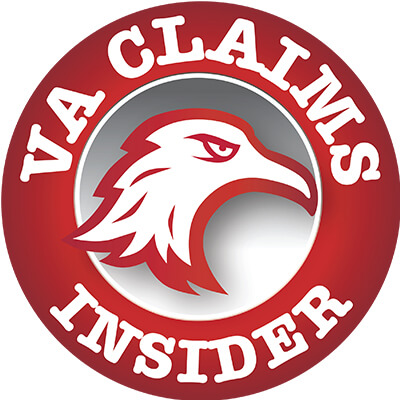Looking for Expert-Level VA Claim Answers?📱Call Us Now! 737-295-2226
When filing for your VA Disability claim, the NEXUS letter is essentially your link between your newfound health condition and your time in service. Without this piece of proof, the VA has no reason to grant your claim.
One of the significant reasons why a disability claim is denied is because of the inability to prove that the medical condition was caused or made worse by the veteran’s time in service.
Often a veteran will submit a claim for a medical condition only to have it denied, and the response by the VA is that the military service did not cause the condition. Unfortunately, this is a situation that occurs quite frequently, but there are ways to defend against this outcome. The best way to do so is by submitting a nexus letter with a claim.
The Specifics of a NEXUS Statement
So, what exactly is a nexus letter? It is a statement written by a medical professional (doctor, physician assistant, nurse practitioner, etc.) that a medical condition is linked or connected to the veteran’s military service.
It should be explicitly written to an individual veteran and typically address one condition per statement. The medical professional who authors the statement does not need to be a VA provider or even a provider that the veteran seeks care from.
Although the nexus statement would be more credible by having a medical professional who has treated the veteran for a said condition over time, providers are unwilling to write a report for the vet for a variety of reasons. In this situation, a veteran can seek an outside medical professional who has the medical expertise and skillset to write the nexus statement. Under this scenario, the medical professional would review all of the pertinent medical records from the veteran regarding the condition and draft the opinion.
What should my NEXUS statement include?
The nexus statement should start by the medical professional stating his or her credentials and expertise and what the purpose of the statement is for.
Second, the report should clearly state that the medical professional has reviewed relevant (list the types) medical records for the veteran’s claim.
Third, the nexus statement should reference specific facts within the medical records that help to support the opinion offered by the author. These facts should list the particular medical record and date in which they can be found.
Fourth, when available, the author can reference medical research that supports the opinion. This is especially important for nexus letters that are trying to tie a secondary condition to an already existing service-connected condition.
Finally, the statement should provide what level of the likelihood the providers feels the condition is service-connected. Now, the opinion does not require the provider to be 100% certain that the military service caused the condition.
It only needs to state there is a level of likelihood that the military service caused the condition. This is an essential piece of the statement, and the VA typically is looking for specific language on this. Here are the levels of certainty from highest to lowest that the VA is looking for in the letter to tie the condition.
- It Is More Likely Than Not (greater than a 50% likelihood) that the condition was caused or aggravated due to the veteran’s military service
- It Is At Least As Likely As Not (a 50% likelihood) that the condition was caused or aggravated due to the veteran’s military service
- It Is Least Likely Than Not (less than a 50% likelihood) that the condition was caused or aggravated due to the veteran’s military service
When should I submit my NEXUS statement?
In regards to when should a nexus statement be submitted, it can be presented at the initial claim application, during the gathering/review stage, and even after a claim decision has been made.
Ideally, it makes the most sense to submit the nexus statement at the earliest opportunity so that it is in the veteran’s file before the C&P exam. This way, the statement has a higher chance of influencing the opinion of the C&P examiner.
However, there are situations in which this may not occur. If this is the case, it is still important to submit a nexus statement and can be done so even after the decision has been made. In this case, a nexus statement can be used as new evidence to reopen the claim if the condition was ruled not in favor of the veteran.
Types of Service-Connection Conditions
Now that you understand what a nexus statement is and what type is contained in the letter, it is worthwhile to know how the VA categorizes conditions and how they can be service connected. There are four major categories on how the VA considers conditions to be service connected for disability and compensation. They are:
Direct Service Connection – When an incident occurred during military service that directly causes a disability in which the veteran is currently suffering from. For this type of connection, it is essential to have the medical condition documented in the military medical records, although there are ways to overcome this requirement.
Aggravated Service Connection – When a medical condition that a veteran has before entering the military is made worse due to service. For this type of service connection, it is vital to show that the condition existed before the military, such as having it documented on the medical entrance exam.
Secondary Service Connection – These are medical conditions in which the veteran has that are caused by already service-connected illnesses and or injuries. Common examples of this type of service-connection are sleep apnea caused by PTSD and depression caused by chronic pain.
Presumptive Service Connection – These are medical conditions in which the VA has acknowledged to be service-connected due to certain military events and or operations. The burden for veterans here is only to show that they have the condition within the timeframe established by the law. Examples here are presumed medical conditions associated with Agent Orange.
Typically, nexus statements are used in the first three categories of conditions. The fourth generally does not require a nexus statement as the VA will rate these conditions without issues as long as the veteran meets the criteria for the presumption.
Why NEXUS letters
In closing, the medical nexus, the letter can be the difference between getting a condition picked up and not picked up. For some conditions, chances are pretty much nil that a condition will be found service connected without a nexus statement, especially secondary conditions.
When seeking out a nexus statement, start with your provider. As stated before, the fact that they have or are currently treating you will carry weight. If you decide to go this route, make sure your provider knows exactly how to write the statement and what phrases must be within the letter.
A letter done improperly won’t help your claim. Now if your provider is unable to write a nexus statement, feel free to contact us at VA Claims Insider. We work with a medical team that has written hundreds of nexus statements for our clients that have resulted in them picking up a variety of medical conditions.
About the Author

About VA Claims Insider
VA Claims Insider is an education-based coaching/consulting company. We’re here for disabled veterans exploring eligibility for increased VA disability benefits and who wish to learn more about that process. We also connect veterans with independent medical professionals in our referral network for medical examinations, disability evaluations, and credible independent medical opinions and nexus statements (medical nexus letters) for a wide range of disability conditions.




